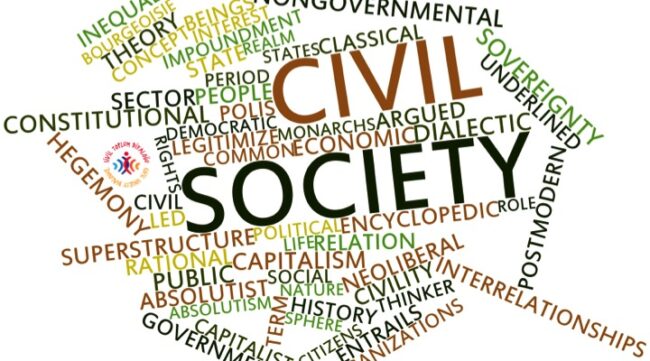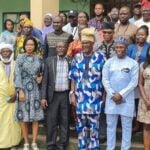The social crisis arising from the subsidy removal policy of the Federal Government has prompted several civil society organisations and other relevant stakeholders to engage in brainstorming sessions on Thursday, seeking ways to navigate the challenges facing the country.
These stakeholders, gathered in Abuja under the banner of the National Dialogue on Subsidy Removal, facilitated by the United States Agency for International Development (USAID) and Palladium, discussed the policy’s implementation, which commenced on May 29th, 2023, and came to the consensus that more proactive actions were necessary from both the government and citizens to mitigate its impact.
One of the participants in the national dialogue, Dr Michael Uzoigwe, stressed the strategic importance of the government cushioning the socio-economic effects of the subsidy removal on citizens. He pointed out that the failure of the fuel subsidy regime in Nigeria was due to flaws in its administration, including lack of transparency, mismanagement, and corruption.
Dr Uzoigwe also highlighted several important questions that should be considered during the deliberations, such as clarifying the actual PMS consumption figures in the country to dispel doubts about the accuracy of the data, unravelling the mystery behind petroleum importation, and implementing consequences for corruption and inefficiencies in the subsidy administration system.
He further emphasized the need for transparency in the process of determining the pump price of fuel and called for a sincere commitment to reducing the cost of governance at all levels of government, ensuring that the burden of economic challenges is not borne solely by the poor and vulnerable.
Echoing Dr Uzoigwe’s stance, Faith Nwadishi, the Executive Director of the Centre For Transparency Advocacy (CTA), urged politicians and government officials to engage Nigerians urgently to find viable solutions that would alleviate the hardships caused by the subsidy removal. She emphasized the importance of transparency, accountability, and citizen participation in this process, as the voices of those directly affected by the policy should be heard and considered.
Nwadishi also expressed concern about the adverse impact of the subsidy removal on various aspects of daily life, such as transportation, essential goods, and services, leading to increased costs of living. She called for sustainable recommendations to address the hardships faced by vulnerable groups in society.
In conclusion, the dialogue aimed to address the challenges posed by the subsidy removal policy and find feasible solutions to mitigate its negative effects on the well-being of the citizens.
YOU SHOULD NOT MISS THESE HEADLINES FROM NIGERIAN TRIBUNE
Full text: See Obi’s written address to Tinubu
Labour Party legal team, led by Livy Uzoukwu (SAN), on Thursday, filed their final written address in response to…
46-year-old Nigerian ‘mysteriously’ dies in Scotland
Security and health experts in Glasgow, Scotland are battling to unravel the mystery surrounding the sudden death of…
Nigerian billionaire businessman Tony Elumelu invited Wizkid as he organises a ‘sip and paint’ to celebrate his…
Subsidy: 10 ways to reduce fuel consumption
Amidst the early days of President Bola Tinubu’s administration in Nigeria, the nation has been grappling with a staggering increase in…
Messi scores on debut as Inter Miami wins league cup match
Argentine Superstar Lionel Messi scored on his debut for Major League Soccer side Inter Miami as they secured a victory over…
RECENTLY, Nigeria has been facing an unprecedented scourge of diphtheria, and so soon after the onslaught of the COVID-19 pandemic. It has been found in…






